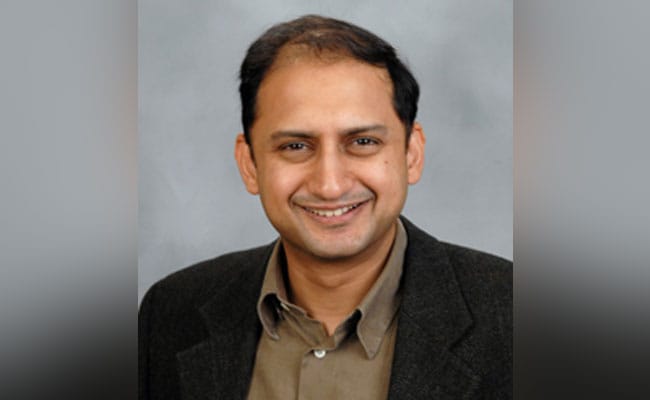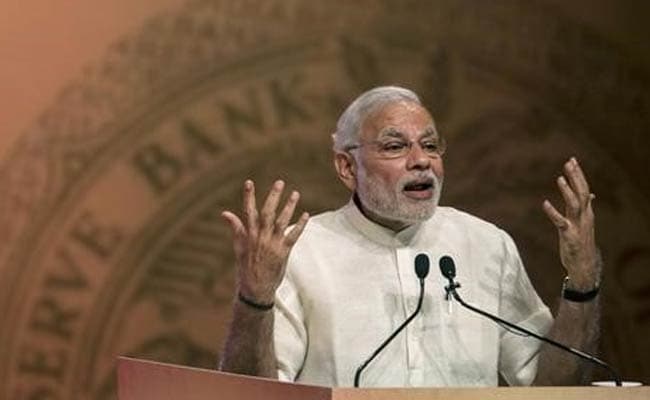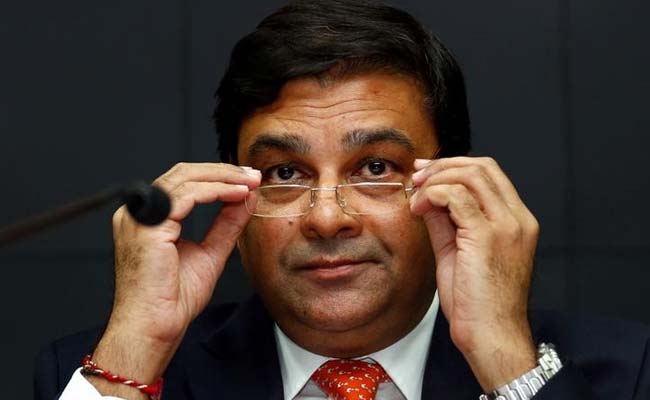A few years ago, the Narendra Modi-led central government did what no other administration has been able to do: it signed an agreement with the Reserve Bank of India that gave India's central bank a clear mandate and thus institutional independence. The RBI, henceforth, would primarily target consumer price inflation - nothing would matter more when it set the interest rate. Not the state of the rupee, nor the employment market, not the cost to the government of borrowing to finance its expenditure - even the government cared far more about these things than it did inflation. Interest rates would be set by a six-person committee, and three of those would be outside, expert economists. The RBI, one could say, had become a truly world-class institution.
So how do we get from there to here, where a Cold War appears to have broken out between Mint Street in Mumbai and North Block in Delhi? Last week, the RBI's Deputy Governor, Viral Acharya, launched a broadside against the government in a speech that warned against infringing on the central bank's independence. Acharya is not a holdover from the UPA era - he was appointed quite recently under the Modi Sarkar. Nor was he speaking only for himself; he was careful to thank his other Deputy Governors, and made sure to specify that he had been encouraged to speak on the topic of RBI independence by the RBI Governor himself, Urjit Patel.

RBI Deputy Governor Viral Acharya has said that undermining a central bank's independence could be "potentially catastrophic"
One big disagreement is whether the money that the RBI has in its kitty is truly its own, or whether it should be forced to hand it over to the government. Like all central banks, the RBI holds a large amount of cash in its reserves. It makes "profits" from the interest on the bonds that it owns. Some of this profit is transferred to the government - as much as Rs 50-60,000 crore (note demonetisation had halved it to Rs 30,000 crore). This is much higher than under, say, most of the UPA's tenure: Raghuram Rajan was fond of saying that the RBI had paid out more in dividends to the government under him than in the entire decade before.
But the government is not satisfied. It wants to get its hands on the rest of the money that the RBI keeps in reserve as well. Viral Acharya quoted a report that said that the government had determined that Rs 3.6 lakh crore of the RBI's reserves were "excessive" and should be transferred to the government.

The government has been trying to trim the RBI's regulatory powers by setting up a new regulator for the country's payments system
Well, what's wrong with that, you ask. Shouldn't the money be used, even if on government spending? Well, there are two things wrong with that. One is that the RBI needs that cash in order to do its job properly: it needs reserves to manage the money and foreign exchange markets in case a crisis develops there. It is also the banking regulator and the "lender of last resort" - if some crucial part of the financial system runs out of money and threatens to bring the entire structure down, it's the RBI that has to step in. Worst of all, as Viral Acharya pointed out, any sign that the government is raiding the central bank's vaults to fund its election-year spending will be seen by the markets as a severe erosion of the RBI's strength and independence and have severe repercussions across the board. Investors need to believe the central bank is working to keep markets secure and liquid - and not working to provide financing to the government. If they lose trust in the central bank, they lose trust in the financial system overall.
Unfortunately, the government is so short of cash, so worried about 2019, and so desperate to spend its way to victory in the elections that it is raiding every kitty it can think of. Policy-holders of the Life Insurance Corporation of India gave the giant insurer their money in trust to invest wisely; instead, the government is forcing LIC to spend it on the government's own priorities, such as saving IDBI Bank, the most troubled bank in India. What about small savings schemes, such as the Public Provident Fund? That money is supposed to be invested safely as it funds the retirement of lakhs of Indians. But instead, the government is taking the money for its own purposes - most recently, to help fund the irredeemably loss-making Air India. Do you feel safer about your PPF knowing that money is being lent to Air India? The government wants to have its cake and eat it too. It wants to pretend that it is responsible, and is not over-spending, and will meet its own fiscal deficit target of 3.3 per cent of GDP. But it also wants to spend freely. The answer it has found is to take money that it shouldn't - including, perhaps ,the RBI's. This is one of the things that caused Viral Acharya to speak out.

Finance Minister Arun Jaitley has criticized RBI and accused it of failing to prevent bad loans
There's also the concern that the government plans to set up an independent "payments regulator" - a body that will oversee digital payments, taking it out of the RBI's purview. This is actually a pretty good idea - but the RBI is not happy about it, worried that it will lead to instability in the broader financial system.
Then there's the issue of public sector banks. The RBI, as banking regulator, has various powers over private sector banks. But it does not have the same authority over public sector banks owned by the government. This throws into sharp relief how unfair Finance Minister Arun Jaitley's recent criticism of the RBI was - he blamed it for the bad loans crisis in public sector banks. But unless the RBI is given full powers to restrain public sector banks, up to and including changing their boards and revoking their licences freely, like it can with private sector banks, it cannot really be held fully responsible for a public sector banking crisis. That responsibility is the government's, which has allowed public sector bank boards to conceal bad loans for far too long, and is now failing to take the only course left: if not privatise them, then at least move banking decisively away from the public to the private sector.

RBI Governor Urjit Patel may consider resigning from his post given a breakdown in relations with the government
Urjit Patel came in for a great deal of criticism for listlessly signing off on demonetisation, the single greatest monetary policy failure in this country's history. But it is clear that he, even if he was a Modi appointee, is ready to resist attempts by the Modi government to reduce the RBI's independence. Encapsulated here is the broader failure of this government: it started with such hopes and ambitions, as visible in the decision to give the RBI an independent inflation target; but now it is reduced to scrapping with the RBI over its reserves to fund its populist election spending. And so yet another institution feels its independence slipping away under Narendra Modi.
(Mihir Swarup Sharma is a fellow at the Observer Research Foundation.)
Disclaimer: The opinions expressed within this article are the personal opinions of the author. The facts and opinions appearing in the article do not reflect the views of NDTV and NDTV does not assume any responsibility or liability for the same.


